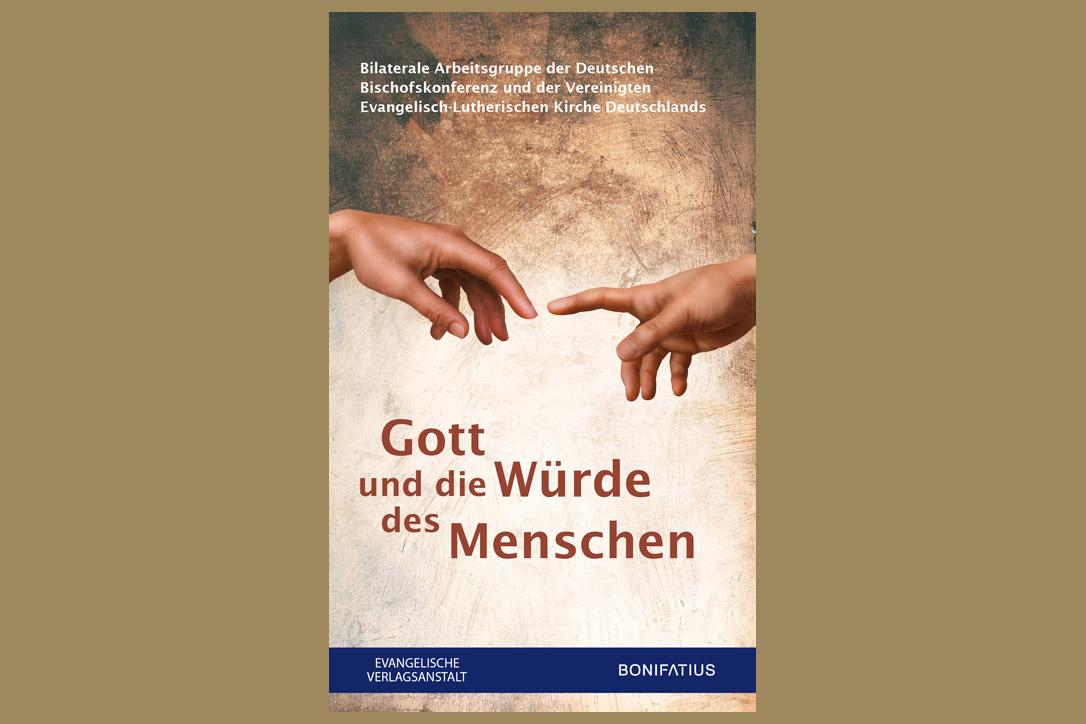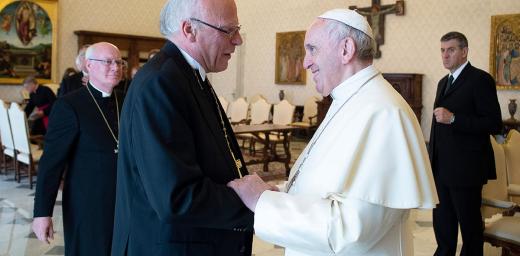God and human dignity

God and Human Dignity - the result of eight years of work by the third Bilateral Working Group (BILAG III)
New study by German Lutheran and Catholic joint working group finds consensus on ethical matters
(LWI) – The third Bilateral Working Group (BILAG III) of the United Evangelical Lutheran Church of Germany (VELKD) and the Catholic German Bishops’ Conference has released a new publication, God and Human Dignity.
The working group grappled with issues related to anthropology and ethical discernment between Catholics and Lutherans over several years of dialogue. Its co-chairs are Catholic Bishop Dr. Gerhard Feige, of Magdeburg, and Lutheran Bishop Dr. Karl-Hinrich Manzke, of Bückeburg.
“In a long, intensive dialogue process we have come to the conclusion that there is a fundamental consensus on anthropology and a broad commonality of ethics. Here too the principle applies that there is more uniting than dividing us,” declared Bishop Feige, who chairs the ecumenism commission of the German Bishops’ Conference.
“In the study the existing differences are termed ‘limited dissent’, which does not remove the fundamental points in common, nor release us from a joint responsibility to protect human dignity.”
Joint stand in favor of human dignity
The third Bilateral Working Group has been working on the topic God and Human Dignity since 2009. It was commissioned by the German Bishops’ Conference and the VELKD church leadership. The study shows areas the two churches hold in common regarding anthropology and ethical discernment.
There is a fundamental consensus on anthropology and a broad commonality of ethics.
It aims to help members of both churches to better understand possible conflicts and to handle them appropriately. Furthermore, it shows that, despite individual differences in ethical questions, it is possible for the churches to take a common, convincing stand in favor of human dignity with regard to ethical questions such as stem cell research, child poverty and education, and assisted dying.
“In view of the current social policy debates we want to strengthen the common anthropological foundations of Christian faith based on biblical testimony,” underlines Manzke, Bishop of Schaumburg-Lippe and VELKD’s spokesperson for Lutheran-Catholic relations.
“I am convinced that the statements in our final report can prompt our churches to stand up together for human dignity, wherever it is questioned or trampled underfoot.”
VELKD has been in dialogue with the German Bishops Conference since 1976 with the aim of unraveling controversial theological issues. The study that has just appeared is the third after Communion in Word and Sacrament (1984) and Communio Sanctorum: The Church as the Communion of Saints (2000).



